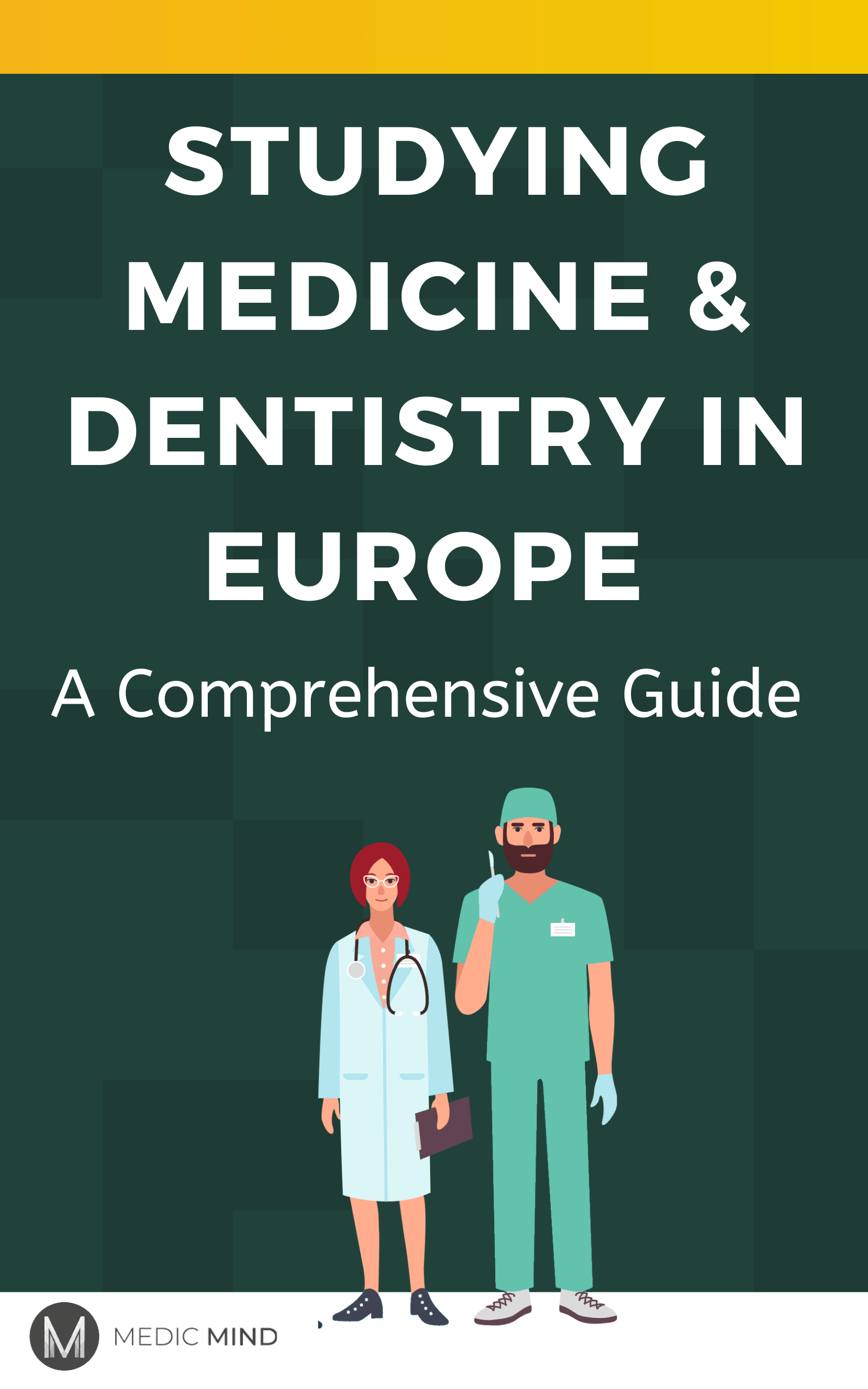Loading...

Top 10 Tips for Studying Medicine Abroad in Europe
Studying medicine is a dream for many aspiring healthcare professionals, and Europe offers many opportunities to pursue this prestigious career path. With its world-class universities, cutting-edge research facilities, and rich cultural experiences, Europe attracts students from around the globe.
However, moving abroad for education can be exciting and daunting, especially if it’s your first time living alone. This blog post will provide you with the top 10 tips for studying medicine in Europe, covering everything from choosing the right university to dealing with homesickness and making the most of your cultural experiences.
Let’s embark on this incredible academic journey together!
1. Pick the Perfect Med School!
When studying medicine in Europe, the first and most crucial step is to choose the right university. Europe boasts numerous renowned medical schools, each with unique strengths and focus areas.
Consider factors like curriculum, faculty expertise, research opportunities, and clinical exposure. Look for universities with accreditation and recognition from relevant medical boards and associations, ensuring your degree will be valued internationally.
2. Be Smart About Finances
Studying medicine is a significant investment in your future, and having a solid financial plan is essential. Research tuition fees, living costs, and available scholarships or grants. Many European countries offer lower tuition fees than other parts of the world, making it an attractive option for international students.
Additionally, explore part-time job opportunities to support your expenses while ensuring it doesn’t negatively impact your studies.
3. Prepare for the Big Move
Moving abroad to study medicine can be a life-changing experience. Adequate preparation is vital to a smooth transition. Arrange your student visa well in advance and ensure all required documents are in order.
Familiarise yourself with the local culture, language, and customs to ease the adjustment process. Contact the university’s international office for support and guidance during your move.
4. Spread Your Wings!
Living alone in a foreign country for the first time can be exciting and challenging. Embrace your newfound independence and take this opportunity to grow personally and academically. Cultivate essential life skills, such as budgeting, cooking, and time management, to become self-reliant and confident in your abilities.
5. Cope with Homesickness
Feeling homesick is a natural part of studying abroad, especially if it’s your first time away from home. Stay connected with family and friends through regular video calls and messages. Engage in activities and clubs on campus to meet new people and build a support system. Remember that homesickness is temporary and will gradually subside as you settle into your new surroundings.
6. Explore the Area
One of the most exciting aspects of studying abroad is exploring a new country and its diverse culture. Take the time to explore the local area, immerse yourself in the community, and try new cuisines. Familiarise yourself with public transportation options and landmarks to navigate the city easily. Be open to making friends from different backgrounds, as they can offer unique insights into the local way of life.
7. Cultural Adventures Await!
Studying medicine in Europe offers more than just academic pursuits. Take advantage of cultural experiences, festivals, and historical sites to enrich your understanding of the country’s heritage. Engage in local traditions and customs to broaden your horizons and develop a global perspective.

✓ Guaranteed acceptance at a European university
✓ Revision material for entrance exams
✓Support with a competitive application
Click on the link below to find out more!
8. Balance Academics and Social Life
Medicine is demanding, and balancing your academic responsibilities and social life is crucial. Effective time management will be your best friend during medical school abroad. Create a study schedule that allows for regular breaks and social activities. Participate in student organisations or sports clubs to meet like-minded peers and de-stress.
9. Adapt to the New Learning Environment
European medical schools may have different teaching methods and examination formats than you are accustomed to. Be open to adapting to these new learning approaches, which often emphasise critical thinking, problem-solving, and hands-on experience.
Seek guidance from senior students or professors to understand the academic expectations and excel in your studies.
10. Build Global Connections
Studying medicine in Europe presents a unique opportunity to build global connections within the healthcare community. Engage in international medical conferences, research projects, and exchange programmes to collaborate with students and professionals from diverse backgrounds. Building such global networks can enhance your career prospects and contribute to your personal growth.
Bottom Line
Studying medicine abroad in Europe is exciting and rewarding, offering a world-class education and unparalleled cultural experiences. By following these top 10 tips, you can make the most of your academic journey while embracing personal growth and global connections.
Whether you’ve already decided on your destination or are still contemplating studying medicine abroad, know that you are embarking on a life-changing adventure that will shape your future as a healthcare professional.
Want to Study Medicine Abroad?
With fewer entrance exams, lower tuition fees and the chance to study at world-renowned medical schools, it’s no wonder that more students are thinking about applying to medical school abroad.
Medlink Students has helped 1000s of prospective medical students gain acceptance onto a medical programme abroad. They provide:
- Guaranteed acceptance to one of 100s of medical schools
- Revision material for entrance exams
- Support in compiling a competitive application
- …and more!
Sounds too good to be true?! Why not book a FREE consultation with them today and start your European medical journey!
Book a FREE consultation with Medlink Students
FAQ
→ Q1. Can I work part-time while studying medicine in Europe?
Many European countries allow international students to work part-time during their studies. However, be mindful of any restrictions and prioritise your academic commitments.
→ Q2. How can I make the most of my cultural experiences while on a budget?
Look for student discounts and complementary events in the local area. Participate in university-organised cultural activities and explore affordable ways to immerse yourself in the country’s heritage.
→ Q3. What language proficiency is required for studying medicine in Europe?
The language requirement varies by country and university. Some programs are offered in English, while others may require proficiency in the local language. Ensure you meet the language criteria of your chosen program.
→ Q4. How do I find accommodation in Europe while studying medicine?
Most universities provide accommodation options for international students. Research university-affiliated housing and explore private rental options. Connect with other students for shared accommodation possibilities.
→ Q5. What resources does Medic Mind offer for medical students studying in Europe?
Medic Mind offers expert guidance on university applications, entrance exams, and adapting to the European learning environment. We provide tailored support to ensure you excel in your medical studies abroad.





Was this article helpful?
Still got a question? Leave a comment
Leave a comment